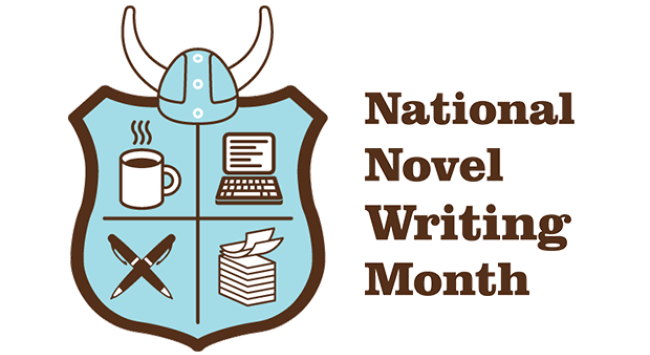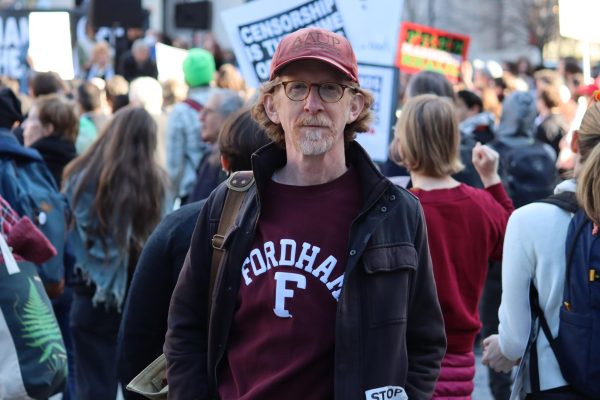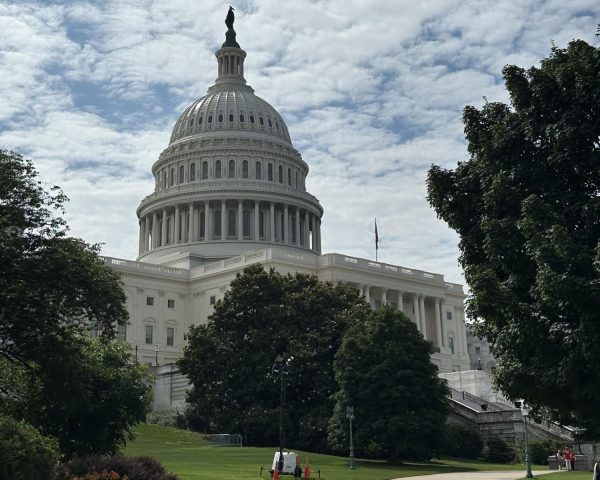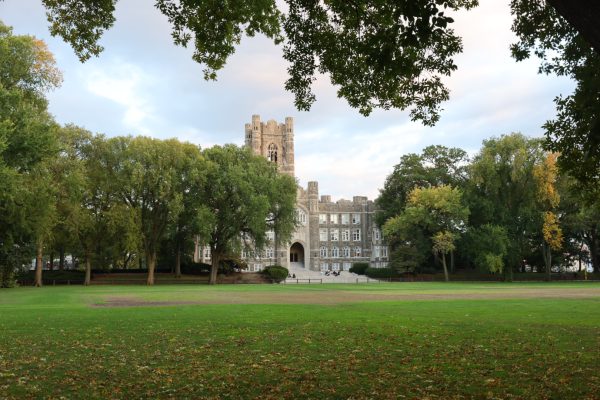Fordham Community Tackles National Novel Writing Month
It’s time to start writing — November is National Novel Writing Month. According to the NaNoWriMo organization’s website, National Novel Writing Month was first introduced in 1999 as a challenge to write 50,000 words within the month.
NaNoWriMo is best known for this yearly initiative, but the organization is responsible for much more. Since 2006, it has been a nonprofit that works to support education and fluency in writing, as well as acting as “a social network for writers like LinkedIn is for job professionals.”
Over 900 program volunteers around the world collaborate with communities to plan writing sessions. Last year, 552,335 writers participated in NaNoWriMo programs, according to its official website. Volunteers guided 671 regions that spanned six continents. The “Come Write In” program was hosted by over 400 libraries, bookstores and community centers. The NaNoWriMo website compares the program to a Fitbit for tracking word count. Though the novel writing challenge occurs in November, programs are being run year-round at many different levels, allowing opportunities for everyone to participate.
Fordham University has students and faculty members who partake in the project each year. Jessica Cozzi, a project manager for the university, explained that there is a Fordham subgroup on the official NaNoWriMo website that several students are a part of. She also shared that the word goal is 50,000 because that is the standard length for the first draft of a novel. Once you’ve reached that word count, it means you truly have written a complete novel.
Cozzi said that the organization holds virtual writing sessions for the participants throughout the month and that regional groups typically hold in-person events. However, the New York City chapter has not been able to have in-person sessions for the past two years due to the pandemic.
The Fordham University Chair of English, Mary Bly, Ph.D., is participating in the challenge for the first time this year. She stated that she has known about it for years but never participated. “But I am loving it!” she said.
Bly explained that she is currently writing a contracted book and was struggling to stay on top of her schedule, having been busy with her work as the English chair. The challenge has encouraged Bly to fit time for writing into her mornings and she stated that it has made her feel happier throughout the rest of the day.
Bly also discussed some of the resources that NaNoWriMo group has provided for writers. The Fordham group has a chat that she has been using each night to see how everyone else’s writing is going. There is a help section with plot charts and videos to provide tips to beginners as well as experienced authors looking to continue learning.
“Basically,” said Bly, “I’d say that NaNoWriMo is for writers at every level.”
The English department hosts weekly “writing sprints” through its department website, English Connect, every Thursday from noon to 1:30 p.m. that are open to any level writer to work on anything of their choosing.
Fordham students who have gotten involved in writing the program said they have thoroughly enjoyed the experience.
Stephen Bragale, a student participating in NaNoWriMo, said that he discovered the program through the Fordham English Department Instagram page. He explained that he enjoys the way NaNoWriMo gamifies the act of writing.
“The site has a variety of achievements that writers can unlock as they update their word count throughout the month,” he said.
Bragale said that, ideally, this extra motivation wouldn’t be needed. Writers would be intrinsically powered by their own passion, making the novel-in-a-month challenge unnecessary.
However, life gets busy sometimes, and having others to keep you going is essential. There is also a satisfaction that comes from helping others in their efforts, said Bragale.
Emily Ellis, FCLC ’23, said that this is going to be the fifth year that she has taken part in NaNoWriMo. She explained that the deadlines can be difficult to meet while balancing the work that comes with being a college student, but also finds them very motivating.
“I hope other students who are interested in creative writing look into NaNoWriMo because it has a lot of great supplemental programs that help aspiring writers,” she said.
Ellis said she encourages her peers to utilize the resources NaNoWriMo offers, whether or not they are ready to commit to the full 50,000-word goal.
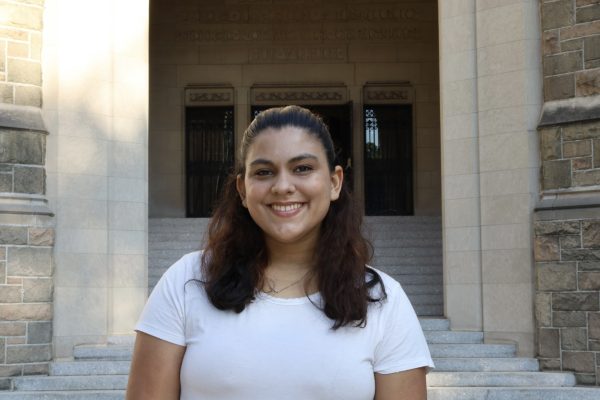
Julianna Morales is a senior from Pittsford, N.Y., majoring in psychology with a double minor in English and disability studies. Julianna joined the Ram...



































































































































































































